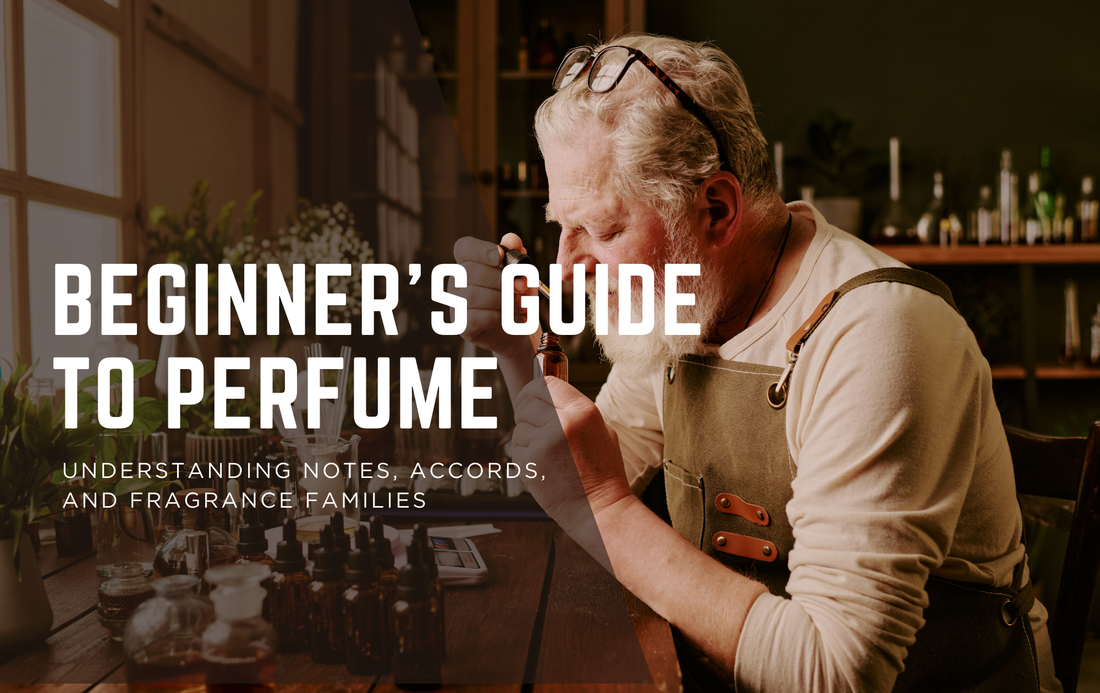
Beginner’s Guide to Perfume: Understanding Notes, Accords, and Fragrance Families
Share
Beginner’s Guide to Perfume
If you’ve ever wondered how perfumes are made or how to pick the right fragrance, you’re not alone. Our beginner’s guide to perfume will help you understand perfume notes, fragrance accords, and fragrance families, so you can confidently select the perfect scent for any occasion.
What Are Perfume Notes?
Perfume notes are the foundation of every fragrance. They are the distinct aroma ingredients that make up the overall scent profile.
The Fragrance Pyramid
Perfumes are built in three stages:
Top Notes – The first impression of a perfume. Light and fresh, with notes like citrus, herbs, or green leaves.
Heart (Middle) Notes – The true character of the fragrance. Often floral (rose, jasmine) or fruity (pear, peach).
Base Notes – The longest-lasting part of a fragrance. Woody, musky, or sweet notes such as sandalwood, amber, and vanilla.
By understanding this fragrance pyramid, you can predict how a perfume will smell after you wear it for a few hours — helping you make better choices.

What Are Fragrance Accords?
A fragrance accord is a carefully crafted blend of notes that together form a completely new scent impression.
Example: A combination of vanilla, tonka bean, and benzoin can create a warm gourmand accord that smells like dessert. This is why two perfumes with similar ingredients can smell totally different — it’s all about the balance of accords.
Main Fragrance Families
Fragrances are categorized into fragrance families to make it easier to navigate the world of perfumes. Here are the main ones:
Floral – Rose, jasmine, peony; feminine and romantic.
Citrus/Fresh – Lemon, bergamot, grapefruit; perfect for daytime and summer wear.
Woody – Sandalwood, vetiver, cedar; warm and grounding.
Oriental/Amber – Spices, resins, vanilla; rich and exotic, perfect for evening wear.
Fougere – Lavender, oakmoss; fresh yet sophisticated, common in men’s fragrances.
Gourmand – Sweet edible notes like caramel, coffee, and chocolate.
Tips for Choosing Your First Perfume
Sample Before Buying – Spray on your wrist and wait a few hours.
Pay Attention to the Dry Down – The base notes tell you if you’ll love the perfume long-term.
Pick a Fragrance Family You Enjoy – If you love fresh, clean smells, try citrus or aquatic perfumes first.
Match to the Occasion – Go for light scents during the day and deeper, spicier ones at night.

Find Your Signature Scent
Choosing your first perfume doesn’t have to be overwhelming. By understanding notes, accords, and fragrance families, you can easily find a fragrance that suits your personality and lifestyle.
